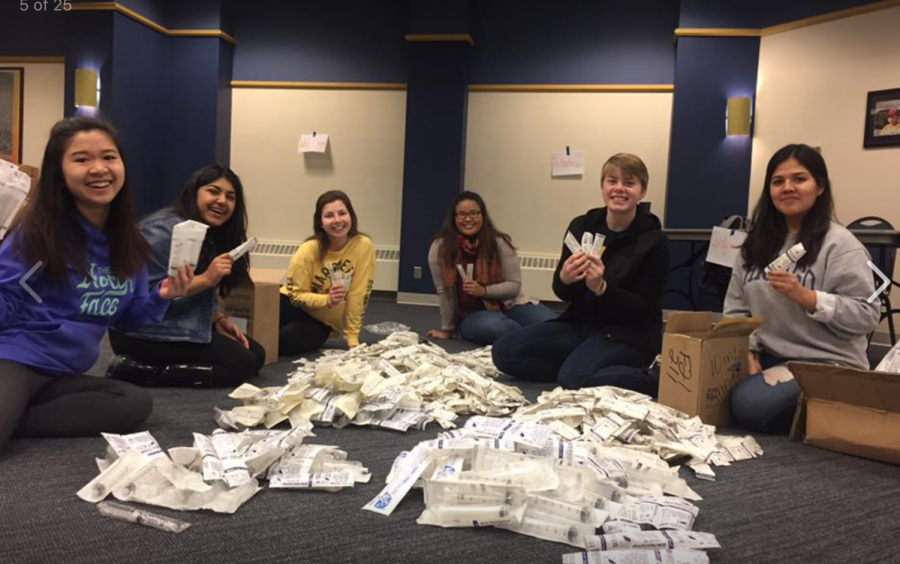Ben Rathi went on a trip to Nepal in 2013 as a University of Michigan student. He visited a major hospital that lacked even the most basic medical supplies, and when he returned to the United States, he saw those same supplies being thrown away in American hospitals.
Rathi went on to found Blueprints for Pangaea, abbreviated as B4P, a medical surplus recovery organization that collects unused or unwanted supplies from hospitals and suppliers in the United States and distributes them to international medical organizations which lack medical supplies. B4P recently added a chapter at Marquette.
“I began connecting the dots, and I wondered how big of a problem this was,” he said. “I learned that in the U.S., we actually throw away hundreds of millions of pounds of unused medical supplies each year.”
Much of the unused medical supplies have never been touched, are still sealed and are in better condition than medical supplies overseas, Rathi said.
In the nearly five years since Rathi’s trip to Nepal, B4P has expanded to eight additional college campuses around the U.S. He has since graduated and was not directly involved in B4P’s expansion past Michigan. However, he remains a chairman of the program.
“There are a core group of people at the University of Michigan right now who are running (B4P), and they are the ones who are coordinating between the chapters that have opened up,” Rathi said.
Blueprints for Pangaea was established at Marquette in April 2017. The Marquette chapter works with local hospitals to collect their unused supplies and distribute them to trips going abroad, Shreya Shah, a junior in the College of Health Sciences and president of B4P, said.
“We take any supplies that hospitals are willing to donate, and we store them in a storage unit,” she said. “Then we find mission trips that need supplies or other organizations that need supplies, and we’ll find a way to ship it to them.”
Shah said there is no health risk in using supplies that would be disposed of by American hospitals because many of these supplies, though past their shelf life, can be safely used for many more years.
“It wouldn’t be anything that hasn’t been sterilized; sometimes it’s things that hasn’t (sic) even been opened,” Shah said.
Utilizing supplies that would otherwise go to waste can be extremely beneficial for the environment, Shah said.
“Usually what happens is if the shelf life has expired and the hospital has to get rid of the supplies without donating them, they’ll have to put them through an incinerator, and that’s pretty bad for the environment,” Shah said.
Moe Han is a senior in the College of Health Sciences and vice president of B4P at Marquette. Han was friends with Shah and decided to run for an executive board position when Shah spoke about the organization in one of her classes. Han said through her time working with B4P, she has learned to be more confident in her decision making.
“You can’t go back and forth with anything,” Han said. “You have to be straightforward and make sure all of the members know what’s going on, so we all can achieve the same goal.”
Currently, Marquette’s B4P chapter has sent medical supplies to Myanmar and Jamaica through mission trips, but Shah said they hope to expand their reach to even more countries.


